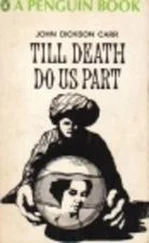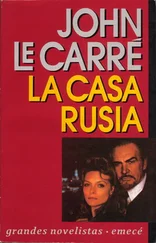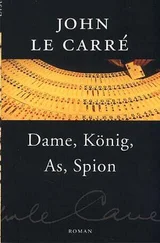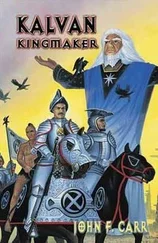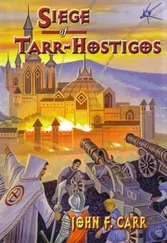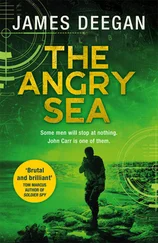‘And in case you have any remaining doubts that your beautiful Foreign Office career is finished, be so kind as to follow me,’ he continued affably. ‘Mind?’
* * *
They are standing in a windowless room like a recording studio with cushioned hessian walls and flat screens. Crispin is playing an extract from Toby’s stolen recording to him at high volume, the bit where Quinn is putting the pressure on Jeb:
‘… so what I’m saying, Jeb, is , here we are, with the countdown to D-Day already ringing in our ears, you as the Queen’s soldier , me as the Queen’s minister …’
‘Enough, or more?’ Crispin enquires and, receiving no answer, switches it off anyway, and sits himself down in a very modern rocking chair by the console while Toby remembers Tina: Tina, the temporary Portuguese cleaning woman who stood in for Lula while she went on holiday at short notice; Tina who was so tall and conscientious that she polished my grandparents’ wedding photograph. If I’d been stationed abroad, it would never have occurred to me that she wasn’t working for the secret police.
Crispin is rocking himself like someone on a swing, now leaning back, now gently landing with both shoes together on the thick carpet.
‘How’s about I spell it out?’ he asks, and spells it out anyway. ‘As far as the dear old FO is concerned, you’re fucked. Any time I choose to send them that recording, they’ll blow you out of the water. Say Wildlife loud enough to them, the poor dears will go wobbly at the knees. Look at what that idiot Probyn got for his trouble.’
Abandoning levity, Crispin braked his rocking chair and frowned theatrically into the middle distance:
‘So let’s move to part two of our conversation, the constructive part. Here’s a package for you, take it or leave it. We have our own in-house lawyers, we do a standard contract. But we’re flexible, we’re not stupid, we take every case on its merits. Am I reaching you? Hard to tell. We also know all about you, obviously. You own your flat, got a bit from your grandfather, not a lot, not exactly fuck-you money, but you won’t starve. The FO currently pays you fifty-eight grand rising to seventy-five next year if you keep your nose clean; no major outstanding debts. You’re straight, you screw around where you can, but no wife and veg to tie you down. Long may it last. What else have you got that we like? A good health record, you enjoy outdoors, you’re fit, you’re solid Anglo-Saxon stock, low-born but you made it through the social lines. You’ve got three languages and a Class A Rolodex from every country where you’ve served Her Maj, and we can start you off at twice what she’s paying you. There’s a golden hullo of ten grand waiting for you on the day you join as an executive vice-president, car of your choice, all the trimmings, health insurance, business-class travel, entertainment expenses. Have I missed anything out?’
‘Yes, actually. You have.’
Perhaps in order to avoid Toby’s gaze, Crispin treats himself to a 360º turn on the runners of his very modern rocking chair. But when he comes back, Toby is there, still staring at him.
‘You still haven’t told me why you’re frightened of me,’ he complains, in a tone of mystification rather than challenge. ‘Elliot presides over a fiasco in Gibraltar, but you don’t fire him, you keep him where you can see him. Shorty thinks he may want to go public, so you hire him too, although he’s a coke-head. Jeb wanted to go very public, and wouldn’t come aboard, so he had to be suicided. But what have I got to threaten you with? Fuck all. So why am I getting an offer I can’t refuse? It makes no sense to me. Maybe it does to you?’
Establishing that Crispin prefers to keep his counsel, he rolls on:
‘So my reading of your situation would be this: Jeb’s death was a bridge too far, and whoever has been protecting you up till now is getting cold feet about protecting you in the future. You want me off the case because, for as long as I’m on it, I’m a danger to your comfort and safety. And actually that’s a good enough reason for me to stick with it. So do what you like with the recording. But my guess is you won’t do anything with it because you’re running scared.’
* * *
The world has gone into slow motion. For Crispin too? Or only for Toby? Rising to his feet, Crispin sadly assures Toby he’s got it all so, so wrong. But no hard feelings, and perhaps when Toby’s a few years older, he’ll understand the way the real world works. They avoid the embarrassment of shaking hands. And would Toby like a car home? No thank you. Toby would rather walk. And walk he does. Back down the O’Keeffe corridor with its terrazzo tiles, past the half-open doors with young men and women like himself sitting before their computers or bowed into their telephones. He receives his wristwatch, ballpoint pens and notebook from the polite men at the door, then strolls across the gravel circle and past the gatehouse through the open gates, with no sight of Elliot or Shorty or the Audi that brought him here, or of the chase car that followed it. He keeps walking. Somehow it is later than he thought. The afternoon sun is warm and kind, and the magnolias, as ever in St John’s Wood at this time of the year, are a perfect treat.
* * *
Toby never knew in any detail, then or afterwards, how he spent the next few hours, or how many of them there were. That he passed his life in review goes without saying. What else does a man do while he walks from St John’s Wood to Islington contemplating love, life and death and the probable end of his career, not to mention gaol?
Emily would still be in surgery, by his calculation, and it was therefore too early to call her, and he didn’t know what he was going to say to her if he did, and anyway he had taken the precaution of leaving the silver burner at home, and he absolutely didn’t trust phone boxes, even if they worked.
So he didn’t call Emily, and Emily later confirmed that he hadn’t.
There is no doubt that he stopped at a couple of pubs, but only for the company of ordinary people, since in crisis or despair he refused to drink, and he had a sense of being in the grip of both conditions. A cash ticket later turned up in the pocket of his anorak, indicating that he had bought a pizza with extra cheese. But when and where he had bought it was not given, and he had no recollection of eating it.
And for sure, wrestling with his disgust and anger, and determined as usual to reduce them to a manageable level, he gave due thought to Hannah Arendt’s concept of the banality of evil, and launched into a debate with himself about where Crispin fitted into her scheme of things. Was Crispin, in his own perception, merely one of society’s faithful servants, obeying market pressures? Maybe that was how he saw himself, but Toby didn’t. As far as Toby was concerned, Jay Crispin was your normal, rootless, amoral, plausible, half-educated, nicely spoken frozen adolescent in a bespoke suit, with an unappeasable craving for money, power and respect, regardless of where he got them from. So far, so good. He had met embryonic Crispins in every walk of life and every country where he had served: just never until now one who had made his mark as a trader in small wars.
In a half-hearted effort to find excuses for Crispin, Toby even wondered whether, deep down, the man was just plain stupid. How else to explain the cock-up that was Operation Wildlife ? And from there, he wandered off into an argument with Friedrich Schiller’s grandiose statement that human stupidity was what the gods fought in vain. Not so, in Toby’s opinion, and no excuse for anybody, whether god or man. What the gods and all reasonable humans fought in vain wasn’t stupidity at all. It was sheer, wanton, bloody indifference to anybody’s interests but their own.
Читать дальше

